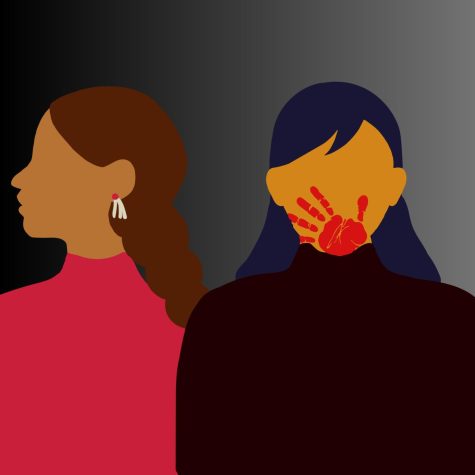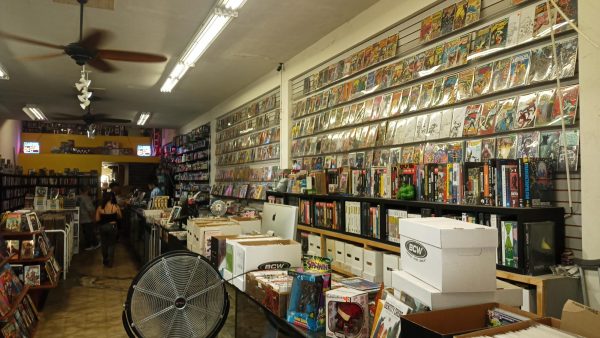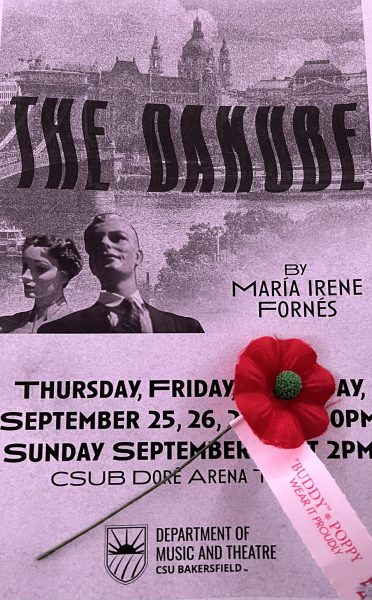Opinion: CSUB’s MMIW march has been MIA for far too long
May 1, 2023

On May 5, students and members of the Native community in town will be participating in a march on campus regarding the Missing and Murdered Indigenous Women epidemic, and it is long overdue.
California State University, Bakersfield sits on historically Native land. As per CSUB’s land acknowledgment, “We acknowledge with gratitude that the meeting place of California State University, Bakersfield is the traditional territory of the Kitanemuk (Ki-Ta-Ne-Muk) people of the Tejon tribe, a place their nation has called home, since time immemorial.”
While the MMIW epidemic remains to be covered by mainstream media, it doesn’t make the issue any less urgent. In fact, more people should be talking about it and raising awareness.
According to Native Women’s Wilderness, “The Missing and Murdered Indigenous Women movement advocates for ending violence against Native women. Statistically speaking, Native women experience more violence, sexual assault, and murder than any other ethnicity.” Sadly, many victims of the MMIW epidemic are unaccounted for due to the ongoing effects of colonization and racism.
Now, Native Americans here on campus are raising their voices for those who have been affected by the epidemic. The march is being organized by David Silva, president of the Native and Indigenous Student Coalition and descendant of the Tohono O’odham Nation (or Pima), the Pascua Yaqui Tribe and the Mayan tribe of Mexico, as well as Christina Contreras, chair of the Indigenous Faculty & Staff Association and descendant of the Diné and Paiute tribes.
“The National Crime Information Center reports that in 2016, there were 5,712 reports of missing American Indian and Alaska Native women and girls, though the US Department of Justice’s federal missing person database, NamUs, only logged 116 cases. These types of statistics are why it’s crucial to advocate for our missing and murdered Native & Indigenous relatives across these lands. Native women are 10 times higher than the national average to be murdered on reservations, and murder is the third leading cause of death in Native/Indigenous women,” wrote Silva in an email interview.
Many of the MMIW cases are left open with no chance of justice, especially those that aren’t even reported. This is why it is vital that awareness is spread; this is the main goal of the march being held on campus.
The Indigenous community deserves better.
Although Indigenous people on campus are a minority, it doesn’t mean we are invisible. We are here, alive and well.
“It is important to recognize this issue at CSUB because of the fact that this university occupies unceded Native land. Part of being a good steward of this land is showing respect to Native and Indigenous people and taking on the responsibility of advocating alongside them on issues that continue to negatively impact their communities. Also, the more awareness there is about MMIW, the greater the possibility of saving more lives,” wrote Contreras.
One key aspect of the MMIW movement is the red handprint, which can be seen on the flier for the event.
“When you see the red handprint, that symbol is a reminder of those who were silenced and no longer have their voice, we are their voice now,” said Silva.
Now, NISC and IFSA are inviting everyone in the community to participate and raise awareness for the victims of MMIW.
“California State University, Bakersfield is an institution of higher learning in a city with a vastly dense population of Native & Indigenous residents. Our campus sits on top of Native and Indigenous land and for us to not speak out against the issues that plague our students, staff, faculty and community would be doing them a disservice,” wrote Silva.
This event has the potential to not only bring awareness to the issue on our campus, but on the campuses of other institutions as well. This march is an opportunity for us to advocate for our fallen Indigenous siblings, and to encourage others to help us bring change.
On behalf of me and my family, I am encouraging students and community members to participate in this march. We should do so to not only help Native Americans on our campus and in our city, but to help the people and families who have become victims of MMIW. They’ve been ignored for too long and it is up to all of us to advocate for them.





